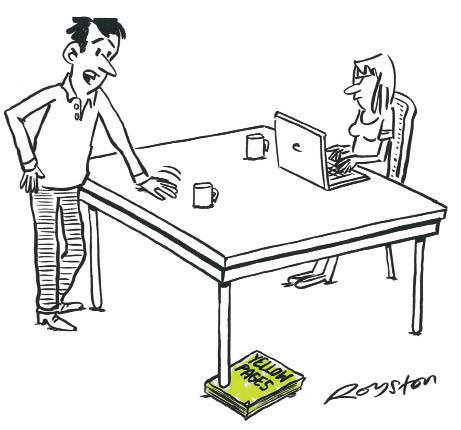The Radio Times now lists 72 channels, and that’s not all of them.
The Radio Times now lists 72 channels, and that’s not all of them. No wonder television has to feed on itself, like a hungry tigress scoffing her cubs. In particular, it devours the past, so this week we had a Morecambe and Wise evening on BBC2, starting with the Christmas show from 1976, a third of a century ago. These shows got peak audiences of 28 million, inconceivable now, and just as French education ministers can allegedly tell you what every child in the country is studying at any moment, programme controllers could sigh with pleasure and know precisely what flickering image was in front of more than half the population. They riveted the nation, in Bagehot’s sense: they tied us together. Rich and poor, intellectual and uneducated, viewers in Thurso and Penzance, old and young — everyone loved Morecambe and Wise, and those who didn’t think they were all that wonderful kept quiet because what else would you talk about on 27 December?
I had forgotten how many layers of nostalgia were involved. Obviously, the 1976 show brought memories to anyone over the age of, say, 40. But the whole structure of the programme was based on the then ancient music hall, with random musical interludes among the funnies, some left alone, others ruthlessly spoofed by Eric and Ernie. Many of the jokes — this particular one was not scripted by Eddie Braben, who gave them their best-ever line (the pair are about to share a chaste bed, in itself a reminder of their early days in cramped theatrical digs, when a police car goes past with its siren wailing. ‘He won’t sell much ice-cream going at that speed,’ says Eric) — were dreadful. ‘
‘There’s much less of it about this year.’ ‘Money?’ ‘No, your hair.’
The worst: ‘It makes my Christmas present to you look paltry.’
‘All right, you pluck it and I’ll eat it.’
Even the dreadfulness of the gags was a tribute to their own past, when audiences would have relished this thin gruel. But now we have five channels more or less entirely devoted to comedy, nobody needs such stuff. We can look back to a time when we had nothing other than bad jokes, and counted ourselves lucky: I don’t know, you young people today with your edgy cosmopolitan humour and gags about handicapped babies and shagging people’s grand-daughters, you don’t know you’re born.
We often forget that in 1954, the BBC gave M&W its own show, Running Wild, which was an unmitigated disaster. One critic said that it provided a new definition of television: ‘The box in which they buried Morecambe and Wise.’ Even I can remember a time when the pair were the national touchstone of dreadful comedy, as Little and Large, and Bobby Davro were in their day. Their revival was astounding and almost inspiring.
Mind you, it was incredible that anyone could find anything to be funny about back in the Fifties. We were reminded in Eric and Ernie, a drama about their early days, shown later on the same night, that BBC guidelines banned any comic references to effeminacy, ladies’ underwear, honeymoon couples, marital infidelity, and ‘allusions to animal habits’, whatever that meant. Until Margaret Thatcher came along, there were few topics to make jokes about.
Come Fly With Me (BBC1) is from another double act, David Walliams and Matt Lucas. It was their first series since Little Britain, and in the same way it featured a gallery of grotesques who managed to be both loathsome and loveable at the same time. They play almost all the people at an airport — check-in girls, flight attendants, quarrelling pilots and, worst of all, the ghastly passengers. As in Little Britain, the situations are repeated, milked and contorted, but are none the worse for that.
Except that whereas you would hope never to meet their earlier characters, such as Vicky Pollard, the only gay in the village and the rest, these people are unnervingly familiar parts of our lives: the bossy yet useless people who are supposed to help you when there are no planes flying, the miserable sods who have inserted themselves on to cabin crew rosters these days, and your fellow passengers who, driven to distraction by the horrors of modern air travel, behave like characters in a Mad Max film, dedicated purely to their own survival. Which means that it is a show you watch through clenched teeth and gritted fingers.
At the end of The Secret Life of Bob Monkhouse (BBC4) Denis Norden quoted Fred Allen: ‘What has a comedian to show for all the years of hard work and aggravation, except the echo of forgotten laughter?’ At least it isn’t always undeserved laughter.





Comments